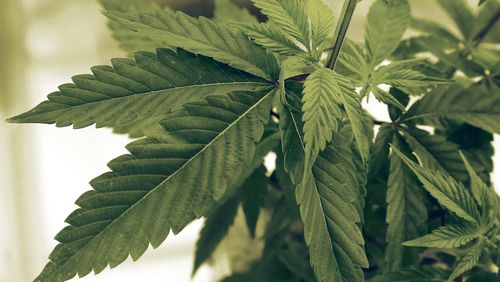A bill offering a small expansion to Georgia’s medical marijuana law will be introduced Thursday in the state Senate, the same day the law’s architect expects to file much broader legislation attempting to legalize growing and distributing the drug in-state for medicinal purposes.
Senate Bill 16 represents an olive branch of sorts from the chamber’s conservative majority, which last year blocked attempts by the House to expand the 2015 law. Lt. Gov. Casey Cagle acknowledged last week that it was coming, saying he thought Senate Republicans may be ready to compromise.
While the Senate majority continues to oppose cultivation, SB 16 would back limited expansion of the law — adding autism to the list of illnesses eligible for use of a limited form of medical marijuana — if there’s a rollback of the allowable THC level in the cannabis oil now allowed here.
THC is the component in the drug that makes people high. The law allows the possession of cannabis oil with up to 5 percent THC. The legislation would reduce that maximum to 3 percent.
Right now in Georgia, patients and, in the case of children, families have to register with the state and are then allowed to possess up to 20 ounces of that limited form of cannabis oil to treat severe forms of eight specific illnesses, including cancer, Parkinson’s disease and epilepsy.
Proponents believe the law should be expanded to include more treatable illnesses. But many also do not support decreasing the THC level; in fact, some want at least a slight increase in the THC level to increase the drug's effectiveness in treatment. Supporters also view an in-state program to grow and cultivate cannabis for medicinal purposes as a "home run" scenario.
It’s an uphill battle, however. Gov. Nathan Deal and law enforcement advocates have opposed any type of expansion without a corresponding move by federal officials to ease restrictions and reclassify the drug. President-elect Donald Trump, in the meantime, has nominated someone for attorney general — U.S. Sen. Jeff Sessions, R-Ala. — who has been a fierce critic of the drug.
State Rep. Allen Peake, R-Macon, who authored the original law, has said he plans to push for broader access and expects Thursday to file legislation that includes constitutional amendment, which would put the question to voters in 2018 whether to allow in-state cultivation and distribution.
About the Author







